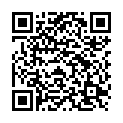|
|
|
| Module code: IBB-460 |
|
|
4V (4 hours per week) |
|
5 |
| Semester: 4 |
| Mandatory course: yes |
Language of instruction:
English |
Assessment:
Written exam (90 minutes / can be repeated semesterly)
[updated 25.11.2019]
|
IBB-460 (P420-0241) International Business, Bachelor, ASPO 01.10.2020
, semester 4, mandatory course
|
60 class hours (= 45 clock hours) over a 15-week period.
The total student study time is 150 hours (equivalent to 5 ECTS credits).
There are therefore 105 hours available for class preparation and follow-up work and exam preparation.
|
Recommended prerequisites (modules):
IBB-340 Microeconomics
IBB-350 Macroeconomics
[updated 19.06.2024]
|
Recommended as prerequisite for:
|
Module coordinator:
Prof. Dr. Markus Hertrich |
Lecturer:
Prof. Dr. Leonhard Firlus
[updated 02.03.2020]
|
Learning outcomes:
After successfully completing this module, students will be able to:
- illustrate the structure of a balance of payments and carry out transactions independently.
- illustrate the causes and effects of trade in a global environment and apply them to current examples.
- explain how exchange rates are determined and their importance for international competitiveness.
- show the possibilities and limits of an expansive demand policy at fixed and floating exchange rates.
- describe the tasks of the main institutions of the European Union.
[updated 18.04.2024]
|
Module content:
1. The balance of payments
2. Exchange rates and the foreign exchange market
3. Aggregate demand in an open economy under fixed and floating exchange rates
4. Theory of international trade
5. Trade policy
6. Introduction to the European Union (European Central Bank)
[updated 18.04.2024]
|
Teaching methods/Media:
This module consists of lectures and group work. Students are expected to prepare and present small group projects on selected topics about foreign trade.
[updated 26.01.2020]
|
Recommended or required reading:
- Krugman, Paul / Obstfeld, Maurice: International Economics. Addison-Wesley, latest edition.
- Feenstra, Robert: International Economics. MacMillan Learning, latest edition.
- Maennig, Wolfgang: Außenwirtschaft, Vahlen Verlag, München, latest edition.
- Rose, Klaus und Karlhans Sauernheimer: Theorie der Außenwirtschaft, Vahlen Verlag, München, latest edition.
- Salvatore, Dominick: International Economics. John Wiley & Sons Inc., New York, latest edition.
[updated 19.06.2024]
|

